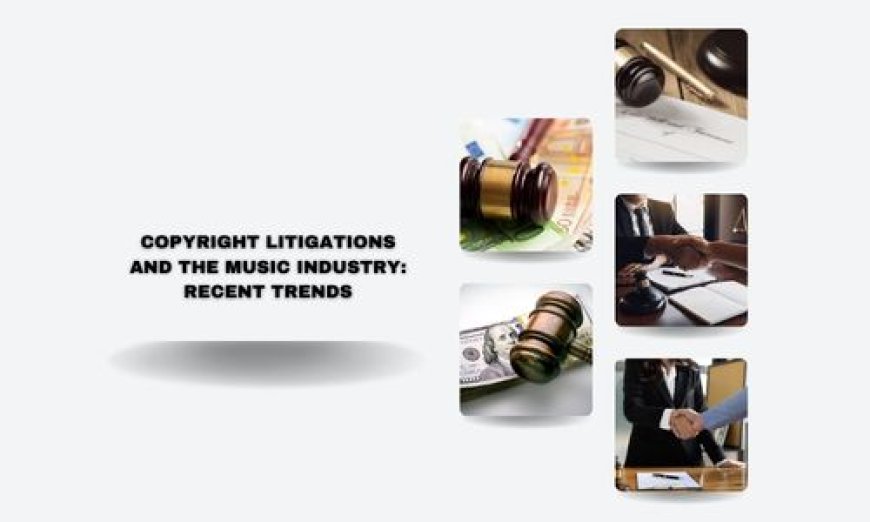Copyright litigations in the music industry is a hot topic. Many high-profile cases have happened recently in the industry. They have had big impacts on artists, producers, and the wider music world. This blog explores some of these trends, shedding light on the evolving nature of copyright disputes in the music world.

The Rise of Sampling Disputes
One notable trend is the increase in litigation over music sampling. Sampling, or using a portion of another artist’s song in a new creation, has been a staple in genres like hip-hop and electronic music. However, as the practice has grown, so have disputes over unauthorized use.
A landmark case in this area is the “Blurred Lines” lawsuit. In 2015, a court ruled that Robin Thicke and Pharrell Williams had copied Marvin Gaye’s “Got to Give It Up” in their hit song “Blurred Lines.” The case resulted in a $5.3 million judgment against Thicke and Williams. The verdict sent shockwaves through the industry. It made artists and producers more cautious about sampling without proper clearances.
Streaming Services Under Scrutiny
The shift to digital streaming has also brought new challenges. Platforms like Spotify, Apple Music, and YouTube have changed music consumption. But, they have also sparked legal battles. Artists and rights holders argue that these services do not pay fair royalties for the use of their music.
A significant development was the lawsuit filed by Wixen Music Publishing against Spotify in 2017. Wixen represents artists like Tom Petty and Neil Young. It sought $1.6 billion in damages. It claimed Spotify used thousands of songs without proper licenses. The case was settled out of court. But, it showed the ongoing tension between streaming platforms and copyright holders.
Songwriting Credits and the Quest for Fairness
Another trend is the growing number of disputes over songwriting credits. As music production becomes more collaborative, determining who deserves credit—and payment—can be contentious. High-profile cases have shown that even minor contributions to a song can lead to major legal battles.
One such case involved pop star Katy Perry and her hit song “Dark Horse.” In 2019, a jury found that Perry’s song copied elements from a Christian rap song called “Joyful Noise” by Flame. The case concluded with a $2.8 million judgment against Perry. The verdict was later overturned. But, it showed the complexity of copyright law in collaborative songwriting.
Increased Awareness and Proactive Measures
As copyright litigation becomes more common, awareness among artists and producers has grown. Many now take proactive measures to avoid legal troubles. This includes seeking legal advice early. Also, ensuring all samples and collaborations are properly cleared and credited.
Moreover, music industry organizations are stepping up to support their members. For instance, the Recording Academy has pushed for reforms to copyright law. They aim to better protect artists’ rights in the digital age. These efforts are crucial. They help navigate the complex world of modern music production and distribution.
Copyright litigation in the music industry is evolving. Sampling disputes are on the rise. Streaming services face scrutiny. Songwriting credits are contentious. These issues reflect broader changes in how we make and listen to music. As artists and rights holders adapt to these trends, the need for clear and fair copyright practices becomes ever more pressing. By staying informed and proactive, the music community can better navigate the legal challenges of the modern era.
Recent trends in music copyright litigations cases show the need for vigilance. They also show the need for adaptation in the industry. Technology and collaboration methods are evolving. So, the legal frameworks and practices that protect art must evolve too. For artists, producers, and industry pros, knowing these trends is key. They protect their work and ensure fair pay in a changing landscape.
Author Bio - The author is a seasoned legal expert with a passion for intellectual property rights and the music industry. With years of experience, they provide insightful analysis and practical advice on navigating complex copyright issues.


 lcmfinanceseo
lcmfinanceseo 










